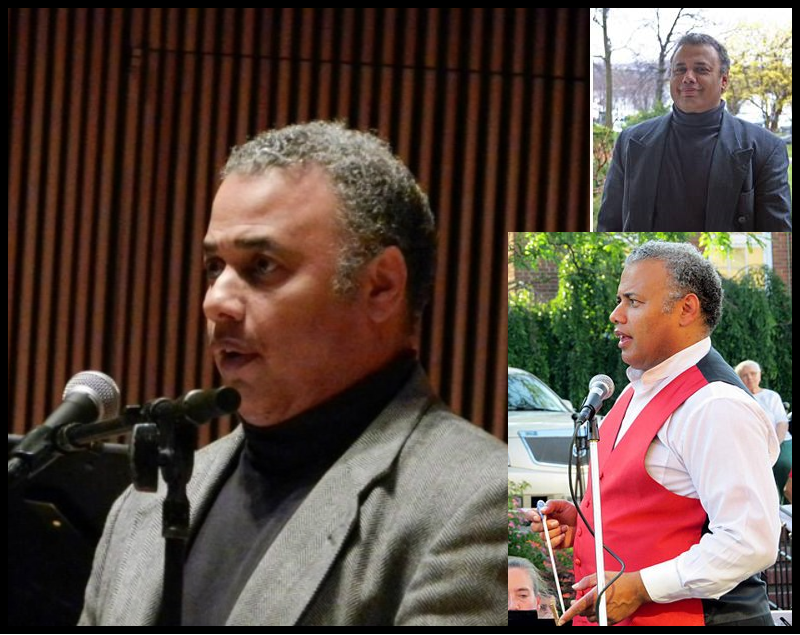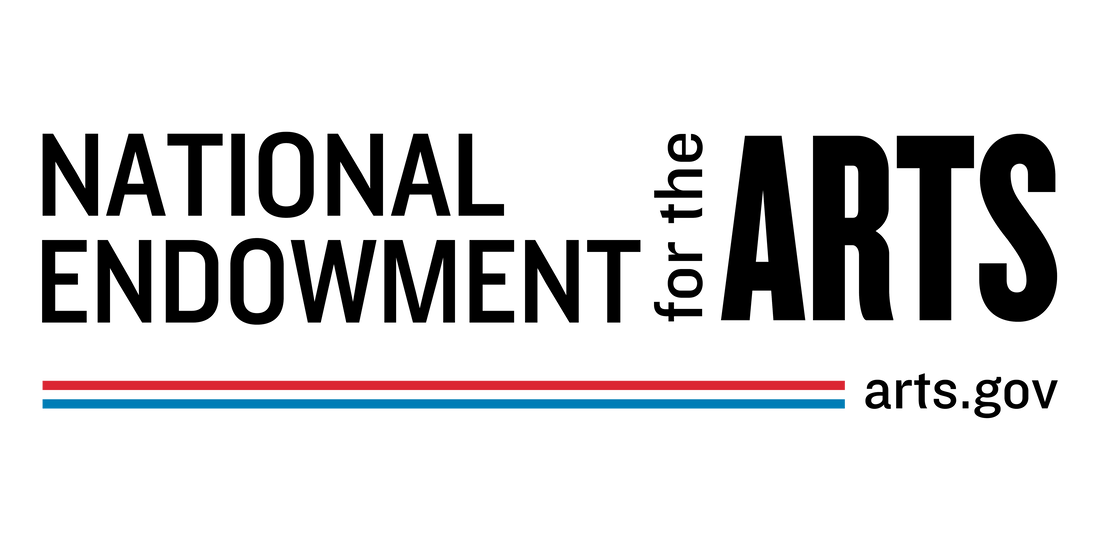|
On this Dr. Martin Luther King Jr. Day, let us reflect upon the dream that Dr. King so articulately expressed for the world - how can the world of Classical music, then, judge composers, conductors, musicians, and musicologists not by the color of their skin, but by the content of their product? If ever there was a musician with such a profound depth and breadth of knowledge and craft, you will find this in Kevin Scott, whose thoughts, interests, compositions, interpretations, and writings never cease to inspire, challenge, and communicate. BIBA: How would you describe your compositional aesthetic?
KS: Not as tough as one would make it out to be. I feel that my music should convey a lack of time. It should not be dated but forever new. Just what new should be defined as is something that its creator should muse about. It can be derivative of old models yet have something new to say from those models, or it can be wholly original with no models whatsoever but have nothing to say. I feel that I embrace both the past and the present: the past through my use of form and structure, the present by using many different styles as long as they don't sound like a mishmash with no purpose. Many composers have embraced a polystylistic mode and I guess I'm one of them if one wishes to analyze what I have composed, but I feel that using a diverse set of tools is simply an arsenal one must have at their disposal in order to create something that is new, different, exciting and certainly invigorating to the mind and the soul. Music should have a significant range, and I try to run that gamut from high drama to zany comedy, although the latter is very, very hard to do unless you have a natural flair for it. I also feel that when I do try to write something with humor it has to still have a structural integrity within the scope of a composition. Prokofiev was accused by one critic of writing individual symphonic movements in his symphonies instead of a symphony where its movements derive from each other. I have tried to write several symphonies, and so far I have yet to find that certain magic that brings those movements together so that they have a continuity and not some sort of random wandering, which I did as a teenager when I first started composing. I just wrote a whole bunch of notes without rhyme or reason, and once you find the right teachers they can guide you to make you find yourself. Some composers have structures so tight that the work sounds feigned rather than organic, and some have no structure whatsoever, yet its melodic content keeps the entire work from sinking to the bottom of the sea. It wasn't easy writing music where you find yourself, and in many ways as you continue to write you do find yourself. You find certain chords that define who you are, you find certain harmonic progressions that you come back to time and again because people will say “ahhh, now we know who this composer is”, because in many ways that harmonic progression is your footprint. And then there's the melodic aspect. My wife says I come up with good melodies though I don't consider melody my biggest strength. Sometimes I drown it out with a tad too much counterpoint! But when you do come up with a strong melodic line it has to move, it has to sweep the audience off their feet and when I do find that line, I make sure it sings on its own and is not encumbered by too much counterpoint! BIBA: Who are some of the composers that you admire for their practice and/or artistic and life philosophies? KS: First of all, the composers I admire the most are those who have remained true to their own aesthetic and have produced music that is both honest to the public and performer as well as works that have a timeless and lasting effect. My list is long, but I've always held George Gershwin close to my heart because he was one of America's first composers that made a major impact on others by his synthesis of jazz, Yiddish theatre and the American popular song of his day alongside a yearning to experiment with many other styles ranging from the impressionism of Debussy and Ravel to the modernism of Schoenberg and his pupil Alban Berg. Berg is also one of my favorites because he himself used much of Schoenberg's compositional methods alongside his love of the great Austro-German tradition ranging from Bach through Haydn and Mozart through Beethoven and Schubert to Mahler, and his music continues to have that timeless element. I love his use of juxtaposing tonal elements, both fixed and ambiguous, while at the same time allowing his music to sing. That we lost both Berg and Gershwin at the zenith of their powers leaves us with a “what if...?” situation where we can only guess which way their musics were heading had they lived to see the impact of the Second World War and its aftermath. This also leads to Mahler, who is after Gershwin my second favorite. I found his music both terrific and terrifying as a teenager, music that grabs you by the throat and shakes you to the core, music that makes you think of the many things he said and would have continued to say had he lived to see the impact of the First World War and its aftermath. His sixth symphony has been deemed prophetic by many, and his incomplete tenth symphony, whether realized in performing editions ranging from Deryck Cooke's bare-bones presentation to Luis Carvahlo's “re-invention”, shows us a new direction in both tonality and a structural sphere where he's already showing us new polyrhythmic elements predating Stravinsky's Le Sacre, but also a transparency in hearing every voice as if they're individual, yet working in sympathetic conjunction with one another. These two symphonies, alongside his second (“Resurrection”) remain my personal favorites. And this leads to other composers close to my own compositional beliefs: Carl Nielsen for his humor and power, sometimes working against each other, and at times also working in alternate worlds where one can feel his tug of war for both the past and his current present to make way for a better future in music; Rachmaninoff for his love of a world no longer his to enjoy except through memories of once was, yet towards the end seeking to incorporate new ideas and not go gentle into that good night; Ravel for his mastery of orchestral colors and elegant beauty; Vaughan Williams for his majesty and epic storytelling through folksong rubbing alongside new harmonic progressions that makes one's emotional body sing with the music; Anton Bruckner also for his humbleness, but also one who sought to experiment by hearing the music of his masters Beethoven and Schubert and synthesizing it with his love of Richard Wagner's dramatic vision, leaving us with an original voice where your soul is either rejuvenated or reviled. And then there's Bernard Herrmann, whom I consider one of America's most neglected figures, both as composer and conductor. Here is a man who didn't suffer fools gladly and told it like it was, even if it meant alienating the closest of allies. His music is straightforward yet never sentimental unless he wants it to be, curt and to the point without adding any unnecessary baggage, colorful not for its own sake but to weigh and mirror every chord, every progression, every nuance of its material to make one think. His scores for the cinema make you think big time about not only what you see on-screen, but also what each character is all about, as if they're right there in your personal presence and not some simple celluloid image. And where, does one ask, are the African-American composers who have played a role in my music and life? Many. William Grant Still is our padrone, for lack of a better term, a man who showed us that we can aspire to our dreams and not allow racism or any other kind of “ism” to disrupt our train of thought in what we want to say and how to say it. And then there's Ulysses Kay, whom I had the pleasure of studying with and performing and recording several of his pieces. Kay was a visionary master whose compositional structure has no holes or weaknesses and also one who stretched the boundaries of tonality, both melodic and harmonic, into a new, albeit subtle, direction. Noel DaCosta, Hale Smith and Ed Bland were mentors who continued to keep me on the “straight and narrow”, always making sure that my music didn't add anything extraneous, stayed true to what you intended to say and not once look at fads merely because they're there to be used. If you found it as a useful compositional tool to add to your arsenal and you had something pertinent to say with it, then by all means incorporate it into your own voice, and this is my key point as to who I am – a composer who is at the crossroads of music, listening to many styles but picking and choosing what's right for what I have to say in my compositions. BIBA: What have been some of your most exciting projects and collaborations as a composer, conductor, thinker, etc...? KS: As a composer? Quite a difficult question regarding collaborations, as I have had very few over the years, but when I wanted to write music for the cinema back when I was in college I had the pleasure of working with two wonderful guys in Bob Zimmerman and Octavio Molina. Both gave me the chance to score their independent films, and one accomplishment I am proud of is scoring Octavio's film “The Avatar and the Neophyte”, which was made in 1977. This is a film that probes the mind of two people who are so different from each other, yet play off against each other, then come to terms with each other and then when the mask is taken off by one of them, reveals the other to be someone that, in their eyes, simply is not who they're supposed to be. Scoring this film was not easy, suffice it to say, as I wanted to incorporate a lot of styles: folk music, free jazz, atonality, modality and even – and this was a stretch for me – avant-garde rock! I would still like to try and hear what I envisioned for the film's original title, as I used electric guitars, rock drummer and a Hammond organ! Maybe one of these days I'll get around to recording the entire soundtrack anew and see what can be done. And then there's my collaboration with R. Jeffrey Cohen who founded the now-defunct RAPP Arts Center, which was located down on the Lower East Side of Manhattan. I inquired to their company via an ad in Back Stage asking if they wanted a composer to write an underscore for their theatrical production of “Ben-Hur”, and this was back in 1989. Cohen had already sought out Philip Glass to score his production of Thomas M. Disch's adaptation of General Lew Wallace's novel, and then when he wasn't available asked Michael Gordon to score it. I believe he turned it down because he also was not available, but I was. I envisioned writing a work for winds, piano and percussion, but Jeff wanted a cello – a lone cello – for some scenes. It worked, and the portion of my score, which was heard in the presentations done in Baltimore, moved Jeff so much he asked me to expand my score for the New York run – for two cellos! This production brought out the best in me as a composer. I decided to use a lot of minimalist techniques, as well as incorporating Judeo-Arabic scales where quarter-tones are not only prevalent, but add a sense of ethereal, almost translucent, beauty to the music. But I also didn't want to see this music forgotten and stay hidden away in a cabinet, so I decided to try and arrange a suite from the score. After musing about what to score it for, I decided to do it for string orchestra, as I felt I could pull more colors out, and at the same time expand the material that would lend itself to a concert format. The first movement, which was the recipient of the Unisys African-American Composers' Forum award by the Detroit Symphony, has been played several times and led to further commissions from orchestras and chamber groups. Over two decades later I met Kirk Smith by way of Yahoo's Orchestralist, and it was Kirk, a conductor based in Houston, who asked me about the suite once he saw the first movement, only to find out that it was more of a jigsaw puzzle than an established work, and it was through his encouragement that I finally finished the suite, which is indeed one of my finest accomplishments in concert music. And then there's my collaborations with conductors such as JoAnn Falletta, Tania León, André Raphel, Leslie Dunner, Yoel Levi and Anthony Aibel, all of whom have performed my music with great aplomb. As a conductor? Even more interesting. I would say that my impact as a conductor of wind band music has had more of an impact than being one for either orchestra or chorus. It was thanks to Mark Strunsky at SUNY Orange Community College who was taken by my credentials and hired me to rejuvenate their college-community band program, which had fallen by the wayside. I had one year to rebuild the group, and what started out as sixteen players at my first concert in April of 2006 became a solidified group of fifty a year later, playing top-notch collegiate repertoire. And it was during this time that I found composers for wind band that would excite me as a conductor and I would go out of my way to promote their music, much to the consternation of some of the players who wanted more of the traditional community wind band fare like Sousa marches or arrangements of familiar Broadway showtunes or Hollywood movie scores. Yet I persevered, and by the time I left the college in the spring of 2014 I had presented eight or nine world premieres, seven New York state premieres and seven local (i.e., Orange County) premieres of works by Dana Paul Perna, David Avshalomov, Gary Powell Nash, James Wilding, Brooke Pierson, Craig Morris, O'Neal Douglas, Kathryn Salfelder, Persis Vehar, Nancy Bloomer Deussen, Ayatey Shabazz and Carlton L. Winston. It was Carlton's music that really captured the imagination of both our players and the audience when I premiered his work “When the Great Owl Sings”, where he was so grateful that he wrote a work especially for us, and we had the chance to premiere “Dionysian Mysteries”, which is one of the most exciting works for wind band to come in a long time. I had hoped that my performance would lead to others, but it hasn't as of yet. The same with O'Neal's “Harriet”, which is one of the most moving works for wind band and deserves – nay, demands to be played by more groups seeking new works that both entertain and enlighten audiences and players alike. But this is not to say that I didn't do this exclusively in the concert band world. I also did my share of premieres with orchestras, such as offering the first European performance of Leo Edwards' Fantasy Overture in Varna, Bulgaria, or the world premieres of works by Craig Morris, Raymond Rosario and Arnold Bieber. And not to stay exclusively with contemporary music, I also offered the first performances in this country, albeit reading sessions, of Norbert Burgmüller's first symphony and Johann Rufinatscha's fourth symphony with the Orchestra Society of Philadelphia. Burgmüller was a friend of Schumann's and died tragically young at 26 before he could really make an impact on German music, and Rufinatscha was a close friend of Brahms who decided not to compose at the peak of his creativity. I should note that Brahms' first two symphonies are, in part, influenced by Burgmüller, while the first movement of Rufinatscha's fourth one hears Schubert and Mendelssohn, yet also Bruckner at his mature moments, and this work was composed in 1849 at a time when Schubert's music was still all but unknown to the world, and Bruckner had yet to compose his F minor “Study” Symphony. BIBA: Where do you see the world of Classical Music in 5 - 10 years? KS: Right now we're in a very strange point in time where one has to define what is 21st century music. We have many different avenues where you have composers who still yearn to experiment and bring diversity to music ranging from the modernist techniques of the latter part of the last century to pop influences of the current one. There are composers out there who simply refuse to compromise their vision of what new music is all about to appease those who feel that new music has lost its way on audiences, and the audiences continue to protest vehemently over being alienated. On the other hand we are witnessing more and more younger composers who are not only embracing tonality, but some of them want to go back to the “old school” of traditional form and content that will make those same audiences who are repelled by the modernist wing embrace this “new tonality”, or “new romanticism” or whatever you want to call it. On the one hand many audiences have fawned over Alma Deutscher, who wants to bring “beauty” back to music in a world where ugliness, in her view, reigns, not only in our current events but even in artistry where it reflects that aspect of our lives. And then you have composers like Quinn Mason and Avrohom Leichtling who absorb all styles of music and yet their symphonies have a rock-solid structure that hearkens back to the great symphonies not only of the “Great American Symphony” tradition from the past century, but also to the post-romantic canvasses we hear in Bruckner, Mahler, Elgar, Schmidt, Hadley, Stanford, Tournemire, Kaun and even early Ives. And yet you have new composers who are attuned to the times, such as Gary Powell Nash, Jennifer Higdon, Christopher Theofanidis, Dan Forrest, Jessie Montgomery, Courtney Bryan, Max Grafe and many others who exhibit a balance of different styles that continue to bring audiences to their feet, and players who are in awe of their compositional prowess. BIBA: I give you the commission of a lifetime and it is without restrictions. What piece would you create? What forces? Duration? etc ... ? KS: Well I certainly would not write a work as big as Mahler's Eighth, Havergal Brian's magnificent Gothic Symphony or the daunting Jama Symphony by Kaikhosru Shapurji Sorabji, tempting as that might be! But if I did have that kind of commission, it would have to be something where I could say “you can't let this money dictate your artistry to the point where you write yourself into frustration.” That said, I would love to fulfill my dream and write my operatic version of Shakespeare's “King Lear”. I know others have done it before, but this play has always been close to my heart since my high school days, and I would love to sit down, tackle the prose and re-structure it without sacrificing Shakespeare's vision, either by myself or with someone I know who would make sure that the Bard is not defiled by any means, and then set that libretto to music. I don't know if I'll get that chance – one has to live long enough to write the magnum opus that is the summation of their creative powers, much like Verdi when he composed Otello and Falstaff which, incidentally, come from Shakespeare! ----- To learn more about Kevin, please follow him on SoundCloud, and follow him on Twitter!
0 Comments
Leave a Reply. |
Details
Writings, musings, photos, links, and videos about Black Artistry of ALL varieties!
Feel free to drop a comment or suggestion for posts! Archives
May 2024
|
Member Login
Black concert series and educational programs in Boston and beyond


 RSS Feed
RSS Feed










